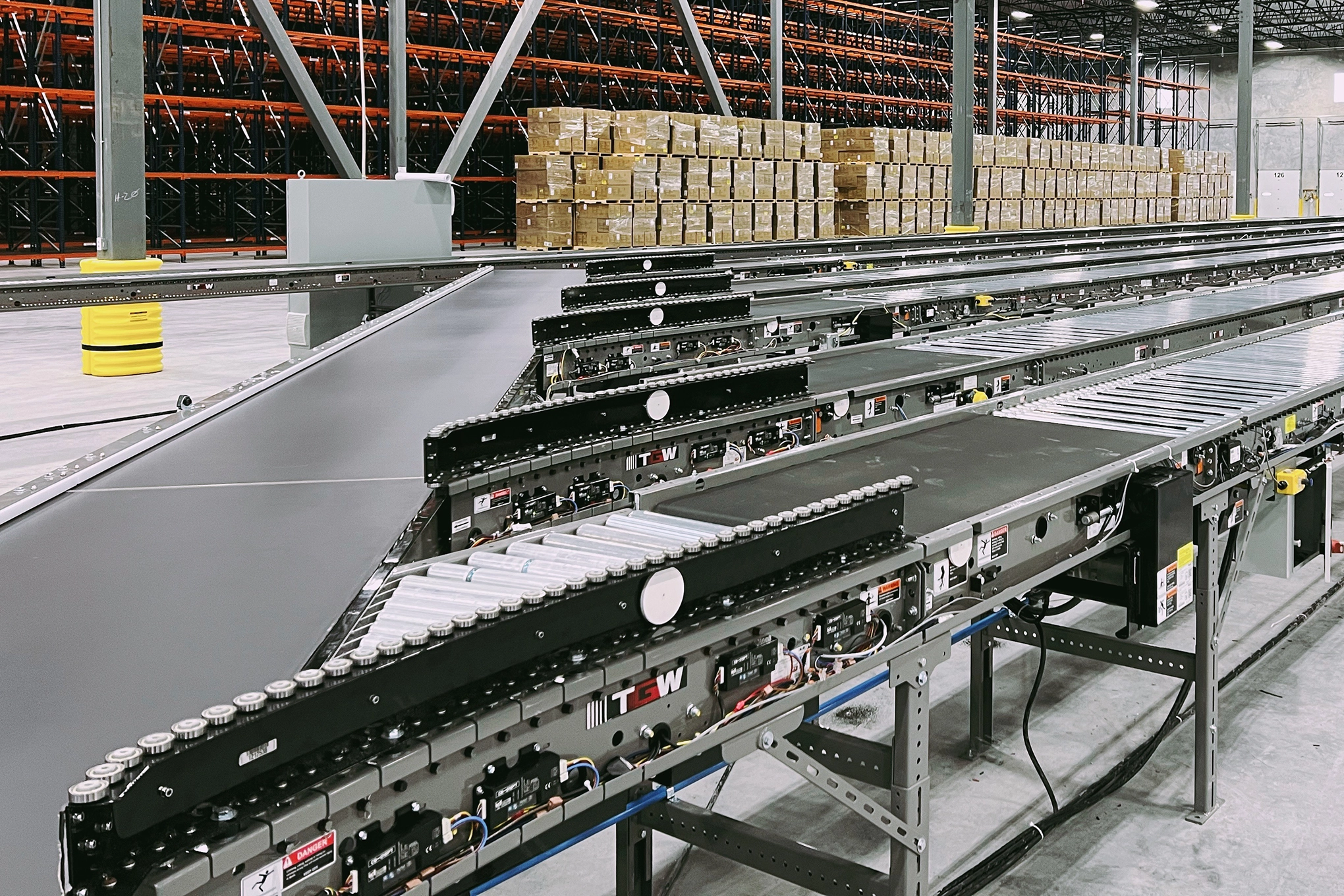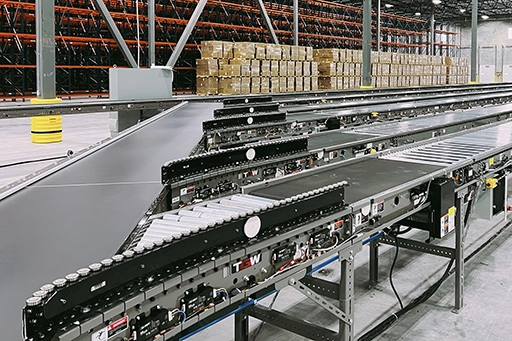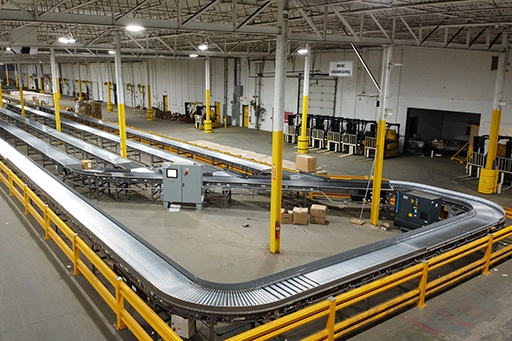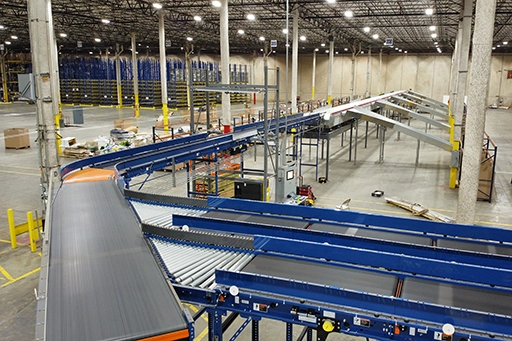Merge Conveyor Systems Overview
A product merging conveyor is used to merge or combine two or more individual conveyor lines into one single line. Each induct line flows seamlessly to the merge line. Combining or merging lines reduces the space needed to transport goods or products, as each line that flows to the same zone can be merged while continuously flowing.







